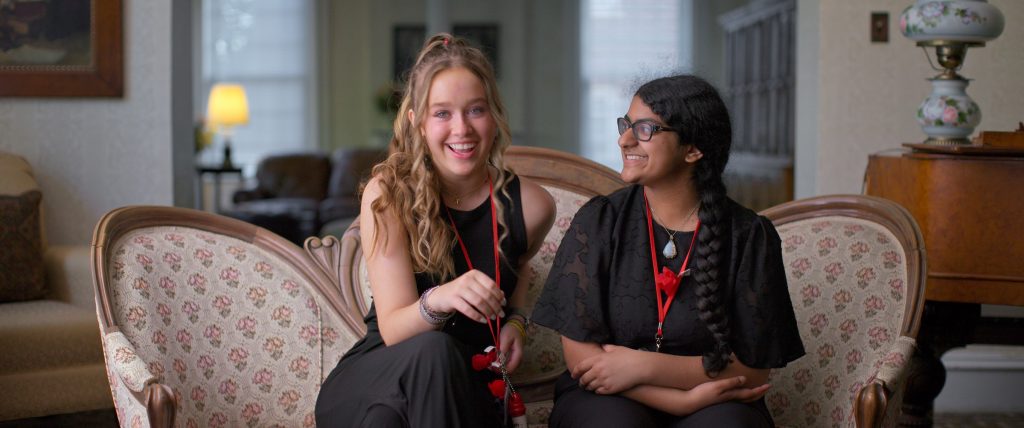In 2020, Apple TV+ released a documentary by directors Amanda McBaine and Jesse Moss Boys State, After the 2018 edition of the Texas after-school program of the same name for teenagers. Boys State puts it on The American Legion, on the other hand, is run by Girls State, its distaff equivalent, the American Legion Auxiliary. Like its counterpart program, each iteration of Girls State brings together high school students from across the American state for a week-long series of simulated government exercises, including politics. debates, Supreme Court cases and, of course, elections. Given the popularity and success of Boy Statue, it was almost unexpected that Moss and McBaine would return to the subject. Sure enough, the pair have recently been fired Girls State (2024), another film that explores what happens inside a miniature nation of teachers’ pets, except this time, the poster is pink.
That’s a bit much. Although the two films are almost identical in structure and approach, many of the conventions of these programs take on a different tenor through this new valence. Both identify a small group of characters to focus on from the outset and follow them on a journey shaped primarily by the government elections of their respective programs. Emily proudly states that she has been participating in class elections since the fourth grade, never losing one, and sees Girls State as a step in her elaborate plan to win the presidency of the United States in 2040. He is also a religious conservative, and he openly wonders how to do it. thread that needle with its members. His ideological opposite is the passionate liberal Cecilia, who has a gift for talking down an opponent in the race for government. Supreme Court nominee Nisha is no less enthusiastic, but struggles with embarrassment; it is one of the few that benefits from the program only from the aspect of socialization. It is wider than the actor Boys State‘s, which allows for more points of view, but which prevents you from going deeper into the issues.

In Boy Statue, the political debates were mostly theoretical, with few participants acknowledging the issues at hand. But it happened just weeks after the 2022 Missouri State Supreme Court roe deerdecision to die Dobbs v. Jackson Women’s Health Organization leaked in May, the program ended just days before the verdict was formally announced in June. In the film, it is remarkable urgent as young women discuss abortion or include the issue in their campaign platforms; real life provides a more vivid lesson in how politics affects them than the college filing activity ever could.
In this context, some girls consider other ways they are at a structural disadvantage, especially since the Missouri Girls’ and Boys’ States are taking place on the same campus for the first time. Girls face restrictions that boys don’t, such as stricter wardrobe standards and the need for a cap when traveling in public. While the Boys State governor-elect is “sworn in” by Missouri’s actual governor, Republican Michael Parson, the Girls State governor gets no such recognition. On a more mundane, but no less so, level, Girls State receives less funding than Boys State, though what that means in terms of how the program works isn’t always clear. Both films sometimes avoid in-depth looks at logistics, presumably for fear of boring the viewer, but these students thrive on following rules and procedures. With the right cinematic attention, their enthusiasm would be contagious.

But again, neither Boys State is not it Girls State It’s really about politics as practiced in the United States. It’s too simple an exercise, too far removed from the intricacies of how power actually works. Boys State what was more interesting was how masculinity works within this particular closed ecosystem Girls State it ends up revolving around its characters awakening to the limits of their environment. (Many conclusions can be drawn about the luxuries of privilege and how they affect these respective environments.) That may be the most valuable part of distinguishing the films as the programs do. A film builds a premise, only to be dismantled by the subjects of the second. That alone gives me more hope for the future than platitudes or seriousness that children can protect.
Girls State (2024), directed by Amanda McBaine and Jesse Moss, will be streaming on Apple TV+ starting April 5.


